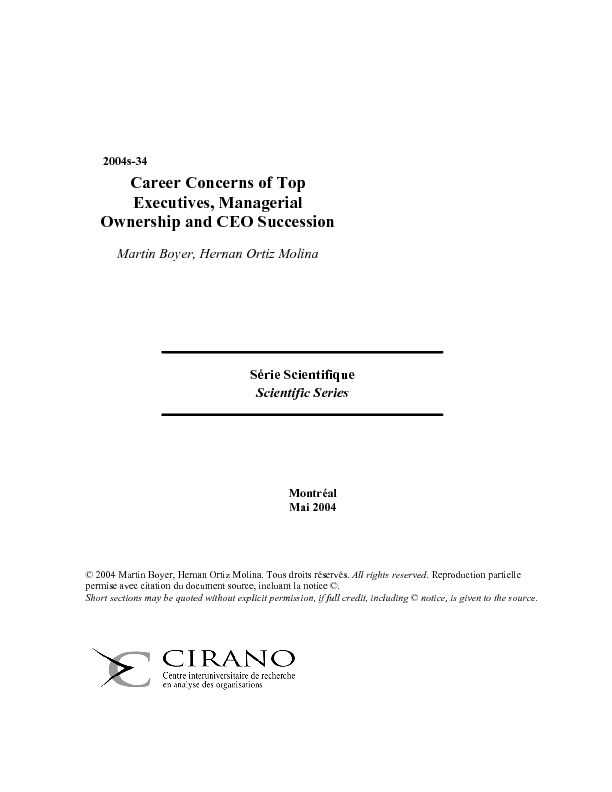Career Concerns of Top Executives, Managerial Ownership and CEO Succession
We model the portfolio decisions by managers with career concerns in a context where ownership of the firm's stock can affect the outcome of promotion contests. In addition to their utility from wealth, such managers derive utility from the monetary and non-monetary benefits (prestige) of running a corporation. Our theory predicts that top managers competing for the CEO position will distort their investment decisions away from the optimum portfolio choice in the absence of career concerns. Thus, our model suggests that changing career opportunities can explain portfolio decisions by managers and that insider ownership can help explain the outcomes of promotion contests. Our main testable predictions are that higher ownership by insiders increases their chances of being appointed CEO; that lower ownership by inside managers makes outside CEO appointments more likely; and that a lower probability of CEO turnover (and thus reduced promotion opportunities) leads inside managers to reduce their ownership in the firm and/or to leave the company. Using data on managerial ownership surrounding CEO turnover events, we find evidence supporting the predictions of our model. Overall, our main insight is that insider ownership, the outcome of promotion contests, the choice between inside and outside CEO replacements, and executive departure decisions are all related.
[ - ]




